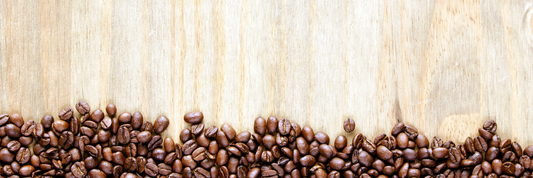Mason jars are more than just durable glass containers; they are an iconic symbol of sustainability, versatility, and timeless design. With a history that spans over 150 years, Mason jars have transformed from essential tools for food preservation into must-have items for crafts, home storage, and stylish décor. In this article, we’ll dive into everything you need to know about Mason jars, including their history, types, uses, and why they remain a staple in eco-conscious living.
- Round Vs Square Glass Jars: Which Is the Best for Your Needs?
- Is It Safe to Freeze Food in Glass jars? Types of Foods Can Freeze in Glass Jars
- Will A Glass Jar Break in Boiling Water?
What Is a Mason Jar?
Definition of a Mason Jar
A Mason jar is a durable, reusable glass container designed with a screw-top lid and a rubber-sealed ring, creating an airtight seal. This unique design ensures long-lasting freshness, making it ideal for preserving food and other creative uses.
Key Components
- Glass Jar: The main body, made of thick, heat-resistant glass.
- Metal Lid: A flat lid lined with a rubber seal for airtight closure.
- Band: A screw-on metal band that secures the lid in place.
Importance
Mason jars are celebrated for their versatility. From canning fruits and vegetables to serving as charming craft supplies, they’ve proven their value in countless scenarios, making them a go-to solution for eco-conscious and creative individuals.

Mason Jar History
Invention
John Landis Mason introduced the Mason jar in 1858, aiming to improve food preservation techniques. The innovation lay in its airtight seal, which helped prevent spoilage and extended the shelf life of preserved foods.
Evolution
Initially a necessity for canning, Mason jars have evolved into a multifunctional item. Over time, they’ve become a beloved choice for sustainable living and a staple in creative DIY projects.
Cultural Impact
During the homesteading era, Mason jars were essential for food storage. Today, they’ve gained renewed popularity among eco-conscious individuals and craft enthusiasts. Brands like Ball, Kerr, and Atlas have become synonymous with Mason jars, cementing their place in history.
Different Types of Mason Jars
Sizes and Capacities
Mason jars come in various sizes to suit different needs:
- 4 oz, 8 oz, 16 oz, 32 oz, and 64 oz.
- Smaller jars are perfect for spices, while larger jars accommodate soups and beverages.

Mouth Styles
- Regular Mouth: Ideal for liquid storage.
- Wide Mouth: Better suited for chunkier contents like fruits or vegetables.
Materials
- Glass: Traditional and most commonly used material.
- BPA-Free Plastic: Lightweight alternatives for on-the-go use.

Specialty Jars
From vintage designs to colored glass and decorative jars, specialty Mason jars add a unique touch to any project or event.
Benefits of Mason Jars
- Eco-Friendly: Reusable and recyclable, Mason jars help reduce plastic waste and promote sustainable living.
- Durable: Made from thick glass, they are built to last longer than plastic containers.
- Versatile: They serve as food storage, crafting supplies, or even home décor items.
- Stylish: Their classic, rustic charm enhances the aesthetic of any space.
What Are Mason Jars Used For?
- Canning and Preserving Food: Mason jars are a cornerstone of home canning, perfect for storing jams, pickles, and sauces.
- Food and Beverage Storage: They’re a great option for meal prepping salads, storing smoothies, or creating overnight oats.
- Creative DIY Projects: Transform Mason jars into painted decorations, fairy light holders, or candle jars.
- Gift Giving: Use them to package holiday gifts, create layered recipe jars, or as party favors.
- Gardening: They make excellent containers for mini terrariums, herb planters, or vases for fresh flowers.
Mason Jar Alternatives
While Mason jars are a favorite for many, there are alternatives worth considering:
- Glass Storage Containers: Leak-proof options with locking lids.
- Metal or Stainless-Steel Containers: Durable and shatterproof.
- Plastic-Free Jars: Compostable or plant-based materials for an eco-friendly option.
- Reusable Silicone Containers: Flexible and lightweight solutions for food storage.

Where to Buy Mason Jars
Mason jars are widely available both online and in-store. One reliable retailer is KimEcopak, which offers a variety of Mason jar options to suit your needs.
Conclusion
Mason jars are more than just containers—they’re a lifestyle choice. Their practicality, eco-friendliness, and versatility make them an essential item for sustainable living and creative projects. Whether you’re preserving food, adding a touch of charm to your home, or exploring new DIY ideas, Mason jars are a timeless solution that never goes out of style.




